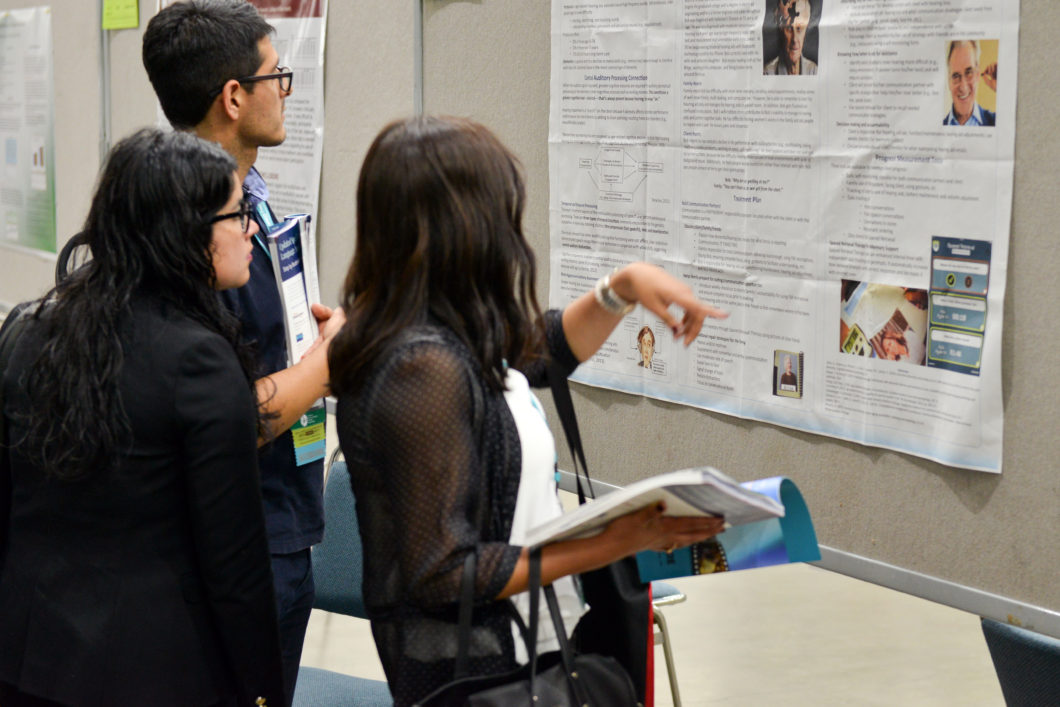I always knew I wanted to major in CSD and I got involved with my program here at the University of Alabama right from the beginning. I volunteered at a local speech center, joined NSSLHA, and excelled in my classes. But I always worried it wouldn’t be enough to get into grad school. I felt like I really needed to get involved in something else to make myself stand out.
Broadening My Horizons
I asked my advisor what I could possibly do to accomplish my goal. She immediately said I should get involved with undergraduate research.
Research?! I thought that was something only super smart advanced students did! What could I possibly do as part of a research project as an undergrad??
So, I researched the professors at my school to see what projects they’d been working on lately. I emailed a few of them, introduced myself, and expressed interest in participating in their work. Out of the five professors I emailed, I received a response from two—which was so exciting!
I set up meetings with each professor to discuss what my role in their research projects could be and got tours of the labs they worked in. After talking more with each of them about their research, I decided that I wanted to work with Dr. Paul Reed on a study of dialectal variations across the state of Alabama. He agreed, and I start this Fall!
Benefits to Participating in Research Projects
You may still think research is just for professors and grad students, but you’re wrong! There are unique opportunities for undergrads to get involved too. Research can be student- or faculty-led, and you can get involved from the beginning or jump into a project in the middle. It can involve inquiry, discovery, and curiosity from students of all departments and disciplines. And you’ll usually be asked to present research findings through poster sessions, articles, and/or oral presentations.
There are so many benefits in getting involved:
- Build a Competitive Grad School Application. Let’s face it, getting into grad school isn’t getting any easier. Everyone has the same test scores and the same GPA. What makes you stand out? Getting involved in research shows admissions committees that you’re serious about the field and are willing to work hard at it. *Bonus* Depending on your university and CSD program, you may even be able to earn credit for it!
- Find Your Passion! Think of getting involved in research as a way to sample all of the different avenues this field has to offer—dysphagia, autism, voice disorders, aphasia, aural rehab. You name it! Participating in research can help you figure out if you do—or don’t—like a particular area of work.
- Learn New Skills. The skills you acquire by participating in research will be applicable throughout your career. It’s a hands-on way to practice what you’re learning in class, and you may use these skills for the rest of your career.
- Build a Community. During a research project, you’ll work closely with professors and other students. What a great networking opportunity! Down the road, you’ll also be able to ask these professors for recommendation letters. Not to mention all the new friends you’ll make with other students on the research team.
- Contribute to the Greater Good. The whole purpose of research is to seek answers to questions. New research is constantly changing the way speech-language pathologists and audiologists work. By participating in research, you can be a part of it!
So How Do You Begin?
Dr. Hay-McCutcheon, an associate professor at Alabama, told me that over the years she’s had 50-60 undergraduate students work with her and believes her research wouldn’t even be possible without the help of undergrads!
Here’s how to get started:
- Think about what topics most interest you.
- Look on your department’s website for info on your research faculty and their interests; find the professors whose interests match yours; then, read their research articles!
- Check out your school’s website and other resources to see if they can help connected you with undergraduate research too. You’re not just limited to your CSD department! Research is a valuable experience, no matter what the subject.
- Talk to your advisor—they might have connections!
Most faculty will be very willing to accept undergrads onto their team! I can’t wait to start working with Dr. Reed this Fall and explore the field of speech-language pathology more. I hope you feel inspired to do the same!

